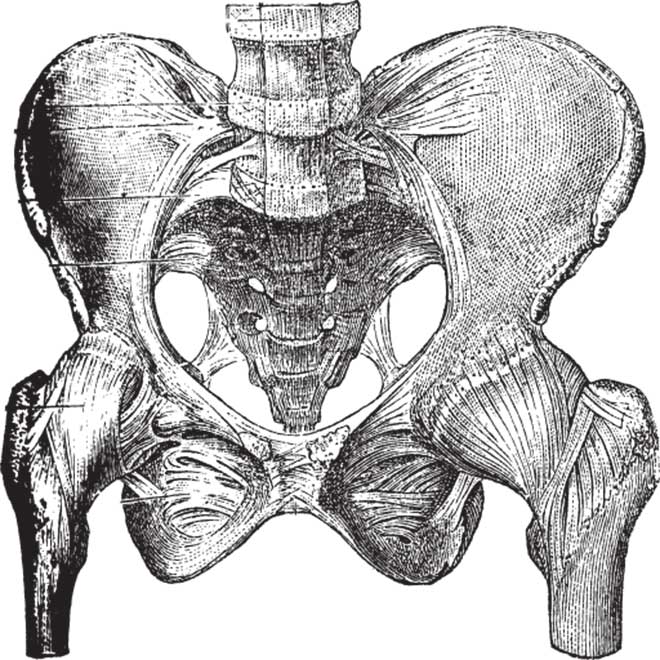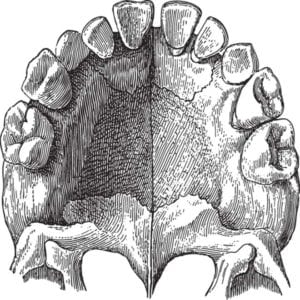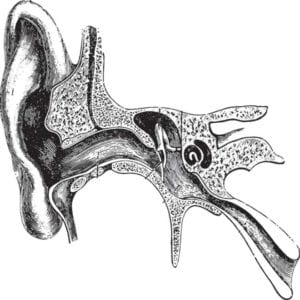As we age, our health care needs tend to increase from head to toe. Joints may wear down, bones may become brittle, and senses may fade with time. So it’s a good thing that medical, dental and surgical advances abound to help seniors combat the effects of aging and lead healthier lives. A look at common dental, hip and balance/hearing issues that seniors face illustrates how modern medicine can help turn them around.
hips
everyone’s doing it
Because medicine is constantly improving and people are living longer, the number of adults having hip replacement surgery is on the rise, says Dr. Jeffrey Martin, a Washington University orthopedic surgeon at Barnes-Jewish West County Hospital. “About 250,000 hip replacements are done in the U.S. each year, and we think that number could double by 2030,” he says.
Hip replacement surgery may be needed when the ball-and-socket joint breaks down as its cushioning cartilage wears away with age, Martin says. “It can be very painful and crippling when bone rubs against bone,” he notes. “Surgery can replace the ‘ball’ or femoral head at the top of the femur bone, and realign the socket.”
new and improved
Dr. Robert Sciortino of Jones & Sciortino Orthopedics says his practice offers a new hip replacement procedure called SuperPath that has a shorter and easier recovery than other surgeries. “With traditional approaches, the surgeon has to dislocate the hip, perform the surgery, then put it back in,” he says. “With SuperPath, we don’t have to dislocate it.” The new technique uses a smaller incision and shorter surgical path through the side of the hip instead of the back, so there’s less trauma to muscles and tendons, and less bleeding, Sciortino notes. Patients go home and regain mobility much sooner afterward, and they have fewer physical restrictions than with traditional procedures, he says. “Some patients can return home the day of the surgery, and many can go home the day after. With a traditional approach, the hospital stay would be at least three days.”
Dr. Brian Wegman of Woods Mill Orthopedics performs a hip replacement procedure that enters the body through the front of the abdomen. He says it, too, results in less surrounding tissue trauma and a shorter recovery period than earlier surgeries. “It’s called the direct anterior approach,” he explains. “The main benefit is that we don’t have to cut, detach or separate muscles in the area. These days, we’re also using smaller implants that are more ‘bone friendly,’ including metal, plastic and ceramic.” Wegman says the surgery removes worn cartilage and creates a rejuvenated joint surface. “It alleviates pain and gives patients greater function and range of motion. It allows us to turn back time for them.”
don’t wait
Martin says today’s hip implant products last a long time and are tolerated well by surrounding tissues. He compares the latest materials to Lego blocks because they fit together in a way that can be customized to the patient’s body. “Our first goal is always to preserve the natural hip as much as we can. We could never manufacture one as good as the original,” he notes.
Martin says most hip patients who end up on the operating table are there because of genetics and osteoarthritis, but joint breakdown also can be caused by less common conditions such as rheumatoid arthritis, osteonecrosis (death of bone tissue), cancer or infection. He says many patients think they can get help only if their condition is severe, but it’s not necessary to suffer; in fact, they shouldn’t wait. “We’ve seen patients with hip joint damage so advanced, it’s almost unsalvageable,” Martin says. “If it’s gotten to the point of bone on bone, a normal day’s activities can be intolerable. And many people believe hip replacement surgery is only for the elderly, but it’s not. Be sure to see a doctor if you’re having problems at any age.”
dental S.O.S.
Our teeth are meant to last a lifetime, but that doesn’t mean they don’t need regular care—and sometimes repair. Decay, injury and normal wear can damage teeth, which makes them more susceptible to cracking, breakage and loss. So does mouth dryness that comes with age as the salivary glands begin to produce less protective saliva, says Dr. John Monterubio of Monterubio & Herbosa Oral and Maxillofacial Surgery. All these factors can contribute to the need for dentures or dental implants when teeth become damaged or fall out, he notes.
Monterubio says he sees primarily two types of cases where dental implants are needed: those where the tooth has been missing for a while, and those where a damaged or diseased tooth needs extraction before an implant can be installed. He also sees patients with old dental work that has failed and needs replacing. The implant procedure can be used to create a new tooth or ‘crown,’ or to secure a full set of dentures in place. It involves anchoring a titanium screw in the jawbone where a missing tooth’s root once was.
crowning touch
Implants usually are capped with zirconium, a material that can be colored to match the patient’s other teeth, according to Monterubio. “These look very natural,” he notes. Technology has advanced in recent years with computer-aided design to create customized implants, and dental surgeons can use high-tech CT (computed tomography) imaging to give a clear picture of the jaw during the procedure, he says.
A CT scan also can help in the diagnostic process, to ensure the jawbone is healthy enough to receive an implant in the first place, Monterubio adds. Getting an implant may take some time if an initial healing period is needed because of injury or infection, he says. But it’s well worth it once the patient can chew and smile confidently again.
on balance
SLUCare otolaryngologist Dr. Anthony Mikulec says hearing and physical balance are more closely linked than most people realize. Both functions are connected to the health of the inner ear, so it’s important to see a doctor if problems arise, he notes. Because balance and orientation can be affected when hearing is compromised, seniors can become more prone to falls and serious injuries.
Good balance requires four things, according to Mikulec: healthy vision; normal proprioception (innate awareness of the body and limbs); a healthy vestibular system in the inner ear; and a normal brain that interprets stimuli correctly. Many seniors have cataracts, lingering effects of stroke, and other conditions that can cause unsteadiness or dizziness, so it’s important to see a doctor if these issues are affecting your balance, he says.
beyond the decibels
Mikulec says hearing aids can help many seniors not just with hearing and balance, but also with mental acuity. When people can hear properly, they are more mentally stimulated, so they’re less likely to become disoriented and fall, he explains. “Patients with hearing aids also tend to stay more ‘plugged in’ to what’s happening around them, and that helps maintain brain function and forestall dementia,” Mikulec says. “Seniors really can benefit from a hearing test to see if they need hearing aids, especially over age 65.” They also can be tested for BPPV (benign paroxysmal positional vertigo), which causes dizziness and balance problems but is easily treated, he says.
“A number of things can cause hearing loss,” adds audiologist Tina McWhorter of Associated Hearing Professionals. “It can be linked to past noise exposure from things like loud music, motorcycles and power tools, as well as smoking and some medications.” Besides balance problems, hearing loss also can lead to social withdrawal and cognitive decline in seniors, she notes, so it should never be ignored. “It’s very important to get that baseline hearing test so doctors have something to compare against if you begin to have problems.” She also points out that modern hearing aids are very small, light and discreet, and can make a huge quality-of-life difference for patients with hearing loss.











